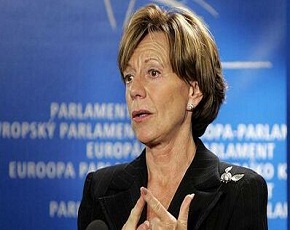The European Commission(EC)plans to have its broadband policy formally adopted by member states by the end of 2012.
EC vice-president and leader of the digital agenda,Neelie Kroes,outlined key aspects of the policy during a speech in Brussels today,saying she hoped the regulation to be relevant for countries and industry until 2020.

"We need to provide this vital infrastructure and we need to do much better to compete,"she said.
"The public sector can help but the really heavy lifting must be done by the private sector."
During her speech,Kroes admitted the debate of how to tackle the roll-out of superfast broadband was polarised to the point that no one policy response could give everyone what they want,but she outlined the three key elements she felt defined the new rules.
First was the need for tougher non-discrimination rules to enable rival providers to offer services on existing infrastructure from dominant players,like what has already happened in the UK with BT.
Kroes wants tests on lines to make sure the wholesale fibre provider is offering the same performance levels to other operators as it does in its own retail product,making for a fairer offering.
Secondly,Kroes called for greater stability in the pricing of internet connections for customers,allowing for customers to pay for what they get,depending on whether their connections are copper or fibre.
Finally,the EC vice-president wants more flexibility for the wholesalers providing the fibre networks,depending on the application of non-discriminatory measures but enabling them to still have a viable commercial option that hasn't been damaged by the presence of other ISPs running across its lines.
Kroes concluded:"This package will rebalance regulations to focus on providing a level playing field."





